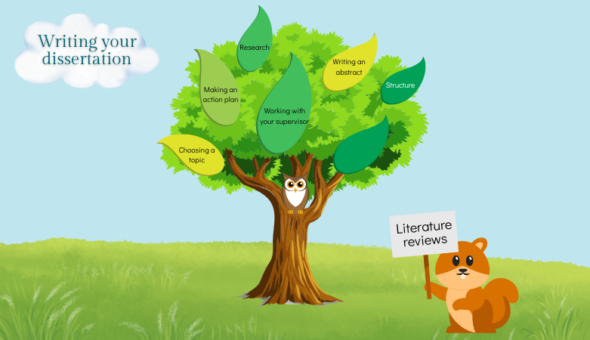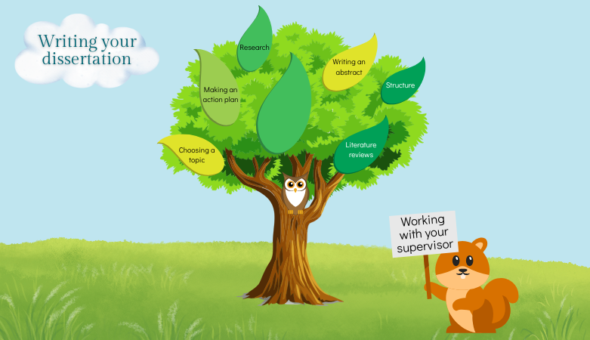What is a literature review?
A literature review is designed to demonstrate your knowledge and understanding of the academic literature on a specific topic. A literature review also includes a critical evaluation of the material.
The three main objectives of a literature review are to;
- identify and examine relevant research, theories and evidence
- conduct a critical evaluation and discussion of this content
- help you identify a gap or on-going problem related to current research that justifies further investigation.
The Literature Review is therefore a significant part of your dissertation and you need to ensure you allow plenty of developmental time.
What is the purpose of a literature review?
The literature review provides the platform to dig deeper into your chosen focus topic. It will help you develop a critical approach, refine your topic, and frame your research questions. Your literature review should enable you to find out what research has already been done and identify what is unknown or problematic within your topic.
In a literature review, it is good practice to:
- summarise and analyse previous research and theories;
- identify areas of controversy and contested claims;
- highlight any gaps that may exist in research to date.
Conducting a literature review - practical steps
When you start (or try to start) your literature review, you might feel a little overwhelmed by the amount of research reading you may have to do. A useful way to bring this under control is to focus on different parts of the review to help you plan, develop, refine and write. Here are a few prompt questions you can use or adapt when you build your literature review, brick by brick.
1. Demonstrating your knowledge and familiarity in your subject/topic:
- What are the significant and established themes of your subject/topic? What are the relevant sources? Why?
- Are they reliable sources? Why?
- What are the methods of research and are they suitable/reliable?
2. Your critical analysis:
- What are the strengths of the themes of your chosen topic? What evidence have you found that supports this?
- Where are the gaps or weak areas in the literature? What are they?
- Are there areas of controversy? What are they?
3. Summarising your thoughts:
- What do you think? Why do you think that? (Based on the evidence you have gathered).
- How does your project/research question link into this? Why does it need to be undertaken? (Try to give an explicit statement for your reader).
- What are the most appropriate research methods to use and why?
4. Structuring your literature review:
- What are the main themes of your project/dissertation? What order do you need to use to explain this to someone else?
- What is the scope /limits of your project/dissertation? (And what is not - important to consider in the planning stages).
- What are the recent developments? Are they significant? Why?
See also: Developing your literature review - Top Tips
Adapted from: https://www.ed.ac.uk/institute-academic-development/study-hub/learning-resources/literature-review
Respond


